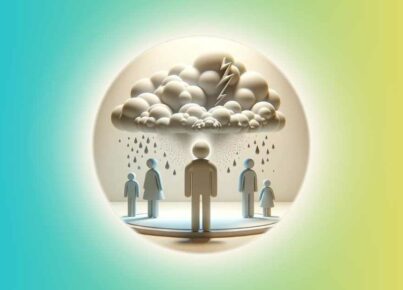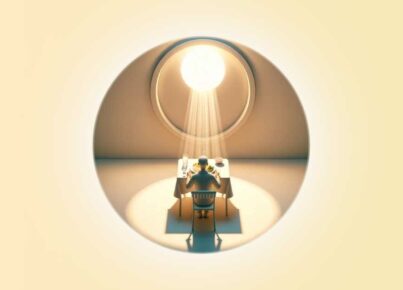There is a new wave in the world of science, a wave that is pushing forward the frontiers of conventional medical and scientific views of the world. The most exciting aspect of it is that it connects with ancient spiritual understanding about the exact nature of being human and living on this earth.
The basic component of this understanding is that mind or consciousness is primary, and the material world, and physical laws that govern how it operates, are put in place by mind.
The science does not tell us exactly whose mind is doing this job. Some of the ancients would have called it the mind of nature. The religious-minded would say it is the mind of God. The scientists who are promoting this new wave of thought refer to a universal consciousness.
But what is clear is that by bringing mind to centre stage, an entirely new way of understanding ourselves and the world is on offer that may resolve some long-standing weaknesses in the materialistic world view.
For example, despite decades of research, neuroscientists have been completely unable to explain how the chemical and electrical activity of the human brain can give rise to the beauty and complexity of experience. The philosopher David Chalmers termed this “the hard problem” of consciousness.
Consider instead that the beauty and complexity of mind comes first, and creates a filtered, individuated mirror or reflection of itself through the brain, and the problem greatly lessens.
It is much easier to construct a theory of how consciousness gives rise to matter, than the other way round.
This idea is supported by the discovery that the brain is “plastic” – it changes with every thought and feeling we experience.
The phenomenon still astonishes neuroscientists, who cannot understand how the brain can change itself.
Again, once we realise that we are not our brains, but units of consciousness – souls – the problem disappears
Similarly, a discovery by the pioneers of quantum physics that matter requires the mind of an observer to “see it into being” has puzzled physicists for a century.
It does not make sense if you consider matter as the primary reality, and mind as a phenomenon emerging from the complexity of the brain.
This problem also disappears when we recognise, as Dr Paul Brunton put it in his 1943 book, The Wisdom of the Over self: “Life has planted us in a universe of thoughts which we have mistakenly taken to be a universe of matter. The whole thing is an appearance in consciousness. The world which seems to be presented from the outside to the senses, is actually presented from within, by the mind.”
Brunton spent many years in Asia, studying Indian and other ancient texts.
Research into ‘near-death’ experiences has helped to confirm that when brain and body become uninhabitable, the core of our being does not end.
Many accounts describe a blissful expansion of consciousness, as if the soul flies like a bird freed from a cage. The experiencer is often reluctant to return!
Such individual stories are supported by studies of what happens in the brains of volunteers given mind-expanding drugs.
Contrary to the belief that parts of the brain would be seen to light up as the subjects went into an altered state of consciousness, experimenters in the UK found the opposite – what they called “decreased activity in the brain’s key connector hubs, enabling a state of unrestrained cognition”.
In the case of most activities, modern scanning techniques usually show activation in multiple parts of the brain, according to the tasks undertaken and the thoughts and feelings experienced. But that doesn’t mean the brain activity is causing the experience.
The brain does not “compose” our thoughts and feelings, just as a radio does not compose the music we hear through it.
The radio metaphor only takes us so far in understanding this new, post-materialist science. The added factor about the brain is that as well as receiving, it records.
As we grow mature, and enter adulthood, these recordings are what makes it possible for us to perform so many functions without having to learn them afresh every time.
But this vital function becomes an obstacle to our happiness and health when our brains become stuffed with memories or ideas of a worldly or painful nature, and we leave no room for spiritual experience.
It all adds up to powerful scientific support for the understanding that when we meditate successfully, we bypass tired old patterns of thought recorded in our brains, and enter a realm of unlimited love and wisdom. This then supports, guides and enriches our everyday lives.
–Image by chenspec from Pixabay


